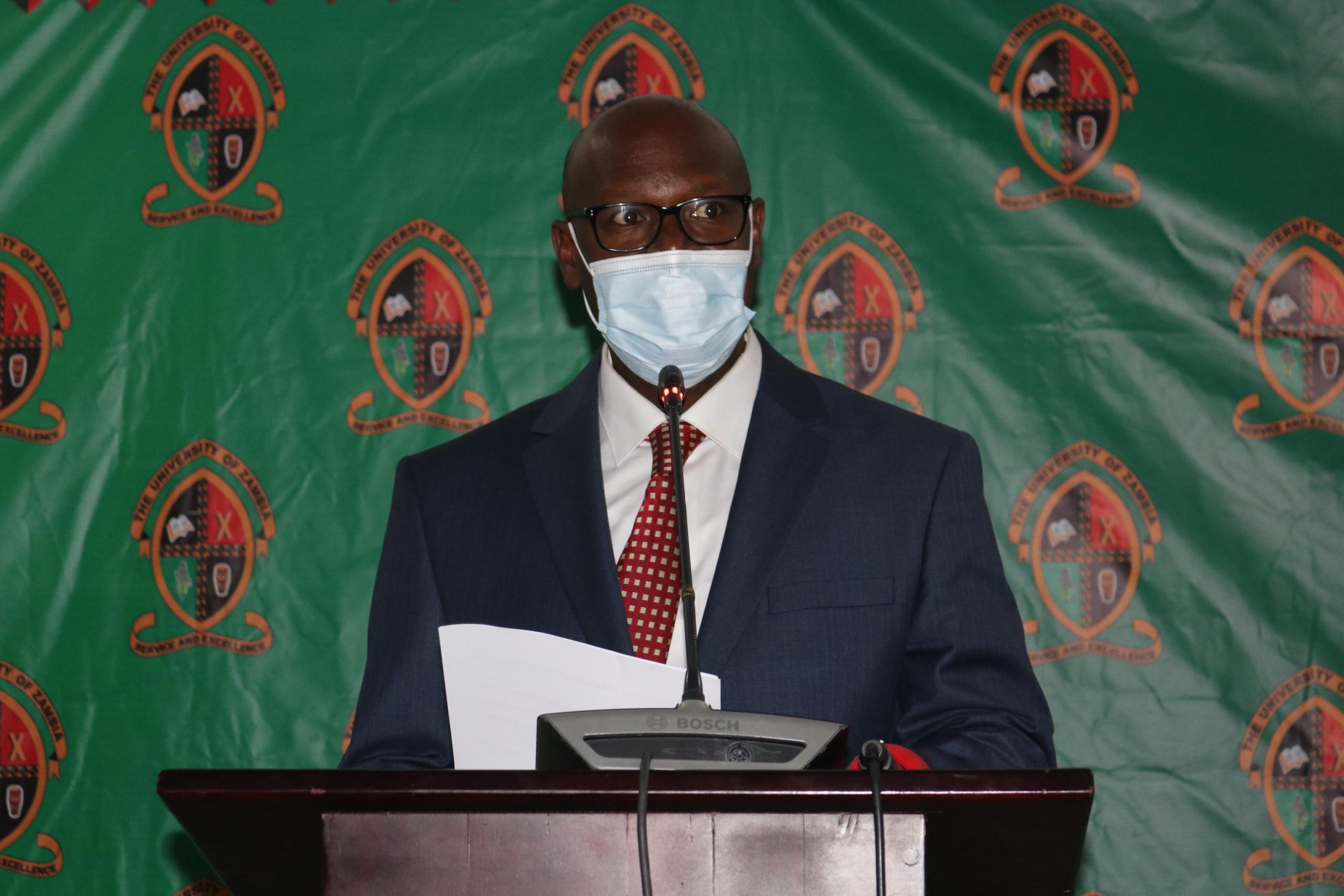University of Zambia (UNZA) has launched 18 newly developed specialised medical and nursing programmes under the University’s school of Medicine and School of Nursing Sciences.
The newly created Post – Master of Medicine and Masters in Nursing programmes were developed with support from Strengthening Health Professional Workforce Education Programmes for Improved Quality Healthcare in Zambia (SHEPIZ).
Speaking at the launch of the programmes at Mulungushi International Conference Centre, yesterday, Ministry of Health Permanent Secretary for Technical Services, Dr Lackson Kasonka said government supports such initiatives as they foster development of medical specialists and leverage local resources.
I congratulate the University of Zambia through the Vice-chancellor, for the efforts and initiatives to enable the Ridgeway campus schools to continue being the leader in training of health professionals,
he said.
The permanent secretary said with Zambia currently having a ratio of one doctor to 12, 000 patients, there is an urgent need to increase the number of medical personnel and also improve medical training in the country.
There is also need to improve the organisational structure of medical training, and the qualification framework, up to the highest sub-specialist level,
he noted.

Dr. Kasonka, who is also a former lecturer of Obstetrics and Gyneacology at UNZA’s Ridgeway Campus, said the limited pool of medical and nursing specialists in the country has become obvious, hence, the need for improvement.
The deficit of medical specialists in Zambia is even worse, and it is not unusual to find a single doctor running an entire hospital, particularly outside big cities or provincial centres,
the permanent secretary said.
For this reason, Zambia heavily relies on medical tourism, which in many cases, is only available for a select few, and significantly strains the already merger resources, and takes away the necessary resource for investing in our own health systems.
Meanwhile, UNZA Vice- Chancellor, Prof Luke Mumba said the graduates of the 18 newly developed programmes, which are the first of their kind in the country, will produce the much needed human resource to meet the diverse heathcare needs of the Zambian population.
Mumba further disclosed that the medical and nursing programmes were developed after benchmarking with programmes from nine regional partner universities.
In addition to the local stakeholders, the development process received due input through consultative inquiries and benchmarking with programmes from University of Cape Town, Stellenbosch University, Nelson Mandela University, Tswane University of Technology, Makerere University, University of Nairobi, Muhimbili University, Kwazulu Natal University and University of Witwatersrand,
he said.
The Vice-Chancellor also appealed to government to recognise super-specialised qualifications.
We have executed our mandate as a University of developing these programmes. We now have a request that the Higher Education Authority (HEA) and the Zambia Qualifications Authority (ZAQA) consider classification of specialised programmes which do not fit directly into the ZAQA framework,
Mumba said.
Furthermore, the Health Professions Council of Zambia (HPCZ) and the Nursing and Midwifery Council of Zambia, for recognition and appropriate registration of super-specialised qualifications.
The programmes launched have been divided into three categories:
Master of Science in Nursing
- Master of Science in Neontal Nursing
- Master of Science in Palliative Care
- Master of Science in Oncology Nursing
- Master of Science in Critical Care Nursing
- Master of Science in Emergency and Trauma Nursing
Master of Medicine
- Master of medicine in Obstetrics and Gyneacology
- Gyneacological Oncology
- Master of Medicine in Dermatology and Venereology
Master of Science in Specialised Medicine
- Master of Science in Specialised Medicine Male Genitourinary
- Reconstruction and Prosthetics
- Master of Science in Specialised Medicine Glaucoma
- Master of Science in Specialised Medicine Paediatric Infectious Diseases
- Master of Science in Specialised Medicine Paediatric Gastroenterology, Hepatology and Nutrition
- Master of Science in Specialised Medicine Paediatric Ophthalmology and Strabismus Surgery
- Master of Science in Specialised Medicine Community Eye Health
- Master of Science in Specialised Medicine Forensic Pathology
- Master of Science in Specialised Medicine Gastroenterology
- Master of Science in Specialised Medicine Paediatric Anesthesia
- Master of Science in Specialised Medicine Vitreo-Retina Surgery
- Master of Science in Specialised Medicine Breast Surgery

